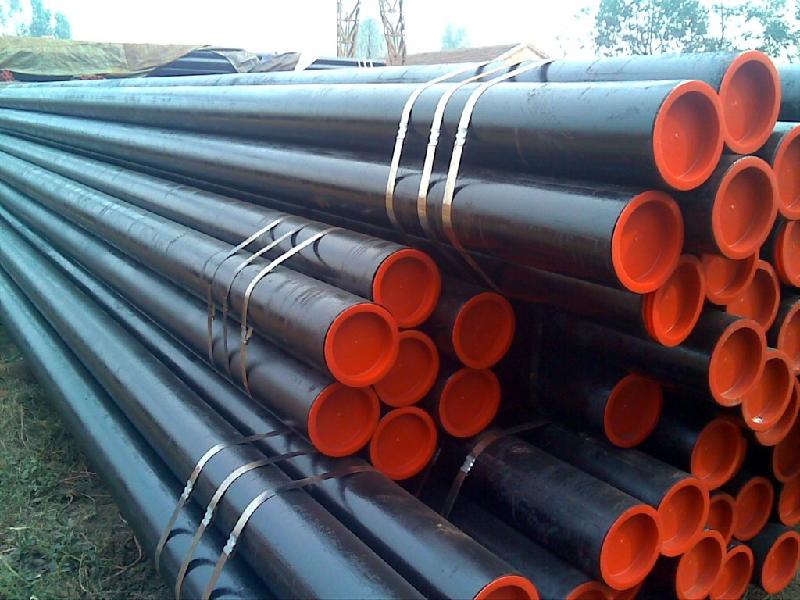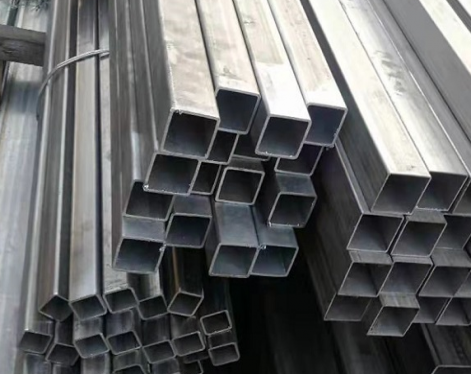The line pipe is to transport the oil and soda extracted from the ground to the oil and gas industry enterprises through the line pipe. The line pipe includes seamless pipe and welded steel pipe, and the pipe end has a flat end, a threaded end and a socket end;The connection methods are end welding, collision connection, socket connection, etc.
The welding of pipeline steel pipes mainly includes three processes: electric resistance welding (ERW), spiral submerged arc welding (SSAW) and straight seam submerged arc welding (LSAW). The welded pipes produced by these three processes have their own positioning in the application field because of their different raw materials, forming processes, caliber sizes and quality. In the field of oil and gas transportation, the main technical standards of steel pipes for transportation are as follows.
(1) API 5L (Line Pipe Specification) is a commonly used specification formulated by the Main Petroleum Institute. The specification is only for steel pipe products and does not cover the design, selection or installation of pipelines. Traditionally, the technical requirements of API 5L are relatively reasonable, taking into account the technical requirements of pipeline steel and the actual production possibility of the manufacturer, but relative to the development of pipeline and pipe making technology.The technical requirements in API 5L are relatively loose, and are rarely applied to the requirements of pipeline projects for steel pipes.
(2) DNV OS F101 (Subsea Pipeline System) is a specification formulated by Det Norske Veritas for submarine pipelines. It involves a wide range of content, including pipeline design, materials, manufacturing, installation, testing, operation, maintenance and other aspects. The technical requirements for steel pipes alone are usually stricter than API5L.
(3) ISO3183-1 (-2, -3) is a standard for the delivery conditions of oil and gas transmission steel pipes formulated by the International Organization for Standardization. According to different service conditions of steel pipes, it is divided into three levels: A, B, and C. The standard also does not cover pipeline design, installation, etc. The technical terms are formulated in a comprehensive and detailed manner.
(4) GB/T 9711.1(-2) is the technical delivery conditions for the transportation steel pipes for the petroleum industry formulated by the Standardization Committee of the Chinese Standardization Committee for pipes and pipes equivalent to the IS03183-1(-2) standard.

API SPEC 5L "Line Pipe Specifications" and ISO 3183 (Technical Delivery Conditions for Conveying Steel Pipes) are internationally influential line pipe specifications.Most oil companies in the world are accustomed to adopting API SPEC 5L specification as the basic specification for line pipe procurement. However, API SPEC 5L is a general standard, and the natural conditions such as geography and climate vary greatly around the world, and the properties of the conveying medium are also different. Therefore, many oil companies regard API SPEC 5L as a basic standard. Based on this standard, supplementary technical specifications (technical conditions) for quality technology are formulated according to local actual conditions or specific requirements of pipelines.
With the increasing demand for oil and natural gas, the transportation pressure and diameter of pipelines are also increasing to increase their transportation efficiency. Considering the structural stability and safety of the pipeline, it is also necessary to increase the thickness of the pipe wall and improve the strength of the pipe, so the development trend for this type of conveying pipe is thick gauge and high strength.
The welding of pipeline steel pipes mainly includes three processes: electric resistance welding (ERW), spiral submerged arc welding (SSAW) and straight seam submerged arc welding (LSAW). The welded pipes produced by these three processes have their own positioning in the application field because of their different raw materials, forming processes, caliber sizes and quality. In the field of oil and gas transportation, the main technical standards of steel pipes for transportation are as follows.
(1) API 5L (Line Pipe Specification) is a commonly used specification formulated by the Main Petroleum Institute. The specification is only for steel pipe products and does not cover the design, selection or installation of pipelines. Traditionally, the technical requirements of API 5L are relatively reasonable, taking into account the technical requirements of pipeline steel and the actual production possibility of the manufacturer, but relative to the development of pipeline and pipe making technology.The technical requirements in API 5L are relatively loose, and are rarely applied to the requirements of pipeline projects for steel pipes.
(2) DNV OS F101 (Subsea Pipeline System) is a specification formulated by Det Norske Veritas for submarine pipelines. It involves a wide range of content, including pipeline design, materials, manufacturing, installation, testing, operation, maintenance and other aspects. The technical requirements for steel pipes alone are usually stricter than API5L.
(3) ISO3183-1 (-2, -3) is a standard for the delivery conditions of oil and gas transmission steel pipes formulated by the International Organization for Standardization. According to different service conditions of steel pipes, it is divided into three levels: A, B, and C. The standard also does not cover pipeline design, installation, etc. The technical terms are formulated in a comprehensive and detailed manner.
(4) GB/T 9711.1(-2) is the technical delivery conditions for the transportation steel pipes for the petroleum industry formulated by the Standardization Committee of the Chinese Standardization Committee for pipes and pipes equivalent to the IS03183-1(-2) standard.

API SPEC 5L "Line Pipe Specifications" and ISO 3183 (Technical Delivery Conditions for Conveying Steel Pipes) are internationally influential line pipe specifications.Most oil companies in the world are accustomed to adopting API SPEC 5L specification as the basic specification for line pipe procurement. However, API SPEC 5L is a general standard, and the natural conditions such as geography and climate vary greatly around the world, and the properties of the conveying medium are also different. Therefore, many oil companies regard API SPEC 5L as a basic standard. Based on this standard, supplementary technical specifications (technical conditions) for quality technology are formulated according to local actual conditions or specific requirements of pipelines.
With the increasing demand for oil and natural gas, the transportation pressure and diameter of pipelines are also increasing to increase their transportation efficiency. Considering the structural stability and safety of the pipeline, it is also necessary to increase the thickness of the pipe wall and improve the strength of the pipe, so the development trend for this type of conveying pipe is thick gauge and high strength.









